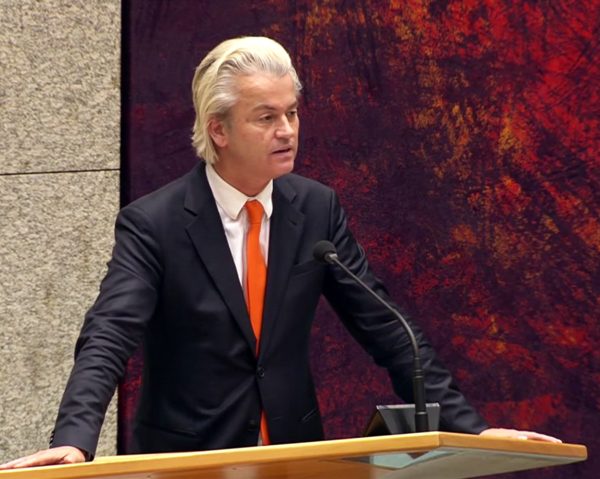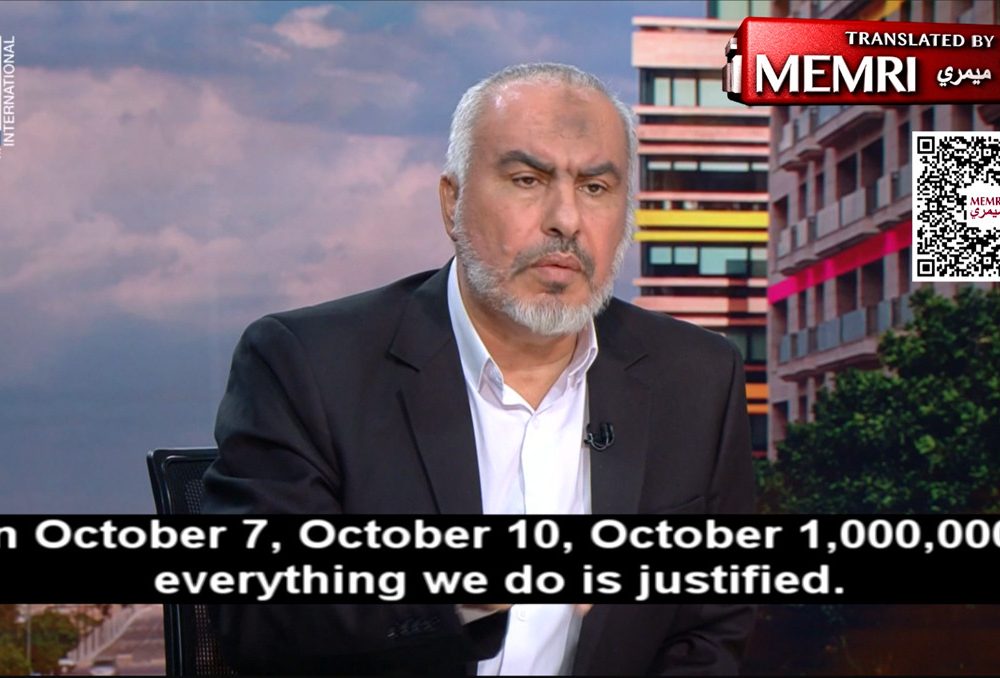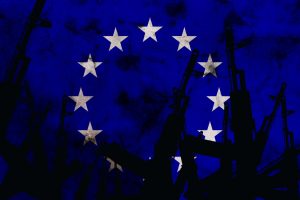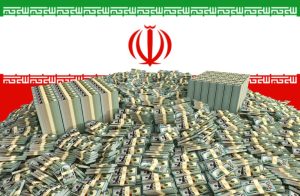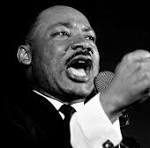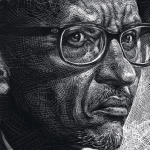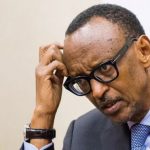There is a widespread but false belief that Mahmoud Abbas is finally prepared to accept the two-state solution proposed by the U.N. in November 1947 when it divided mandatory Palestine into two areas: one for the Jewish People; the other for the Arab People. The Jews of Palestine accepted the compromise division and declared a nation state for the Jewish people to be called by its historic name: Israel. The Arabs of Palestine, on the other hand, rejected the division and declared that they would never accept a state for the Jewish people and statehood for the Palestinian people. They wanted for there not to be a state for the Jewish people more than for there to be a state for their own people. Accordingly, they joined the surrounding Arab armies in trying to destroy Israel and drive its Jewish residents into the sea. They failed back then, but over the years, and to the current day, they continue to want no state for the Jewish people more than they want a state for Palestinian Arabs. That is why Abbas refuses to say that he would ever accept the U.N. principle of two states for two peoples. I know, because I have personally asked him on several occasions.
In a few months, Israel will be celebrating the 70th anniversary of the historic U.N. compromise, but the leaders of the Palestinian Authority still refuse to accept the principle of that resolution: two states for two peoples.
President Trump, for his part, has expressed an eagerness to make “the ultimate deal” between the Israelis and the Palestinians. This has propelled discussions about the dormant peace-process back into the spotlight. Shortly before travelling to the Middle East – where he met with Prime Minister Netanyahu in Israel and President Abbas in Bethlehem – Trump invited the Palestinian leader to the White House. Abbas was last at the White House in March 2014 shortly before the Obama administration’s shuttle diplomacy efforts –led by Secretary of State John Kerry – fell apart.
Leading up to his meeting with President Trump in Washington, Abbas said to a German publication: “We’re ready to collaborate with him and meet the Israeli prime minister under his [Trump’s] auspices to build peace.” He then went on to voice his support for a two-state solution, saying, “It’s high time to work on the requirements for it.” This was interpreted as a willingness on Abbas’ part to accept the idea of a state for the Jewish people. Generally speaking, the international community supports the idea of resolving the Israeli-Palestinian conflict with two-states for two-peoples: a state for the Jewish people alongside a state for the Palestinians. Yet presenting Mahmoud Abbas as a supporter of the two-states for two people formulation is to deny truth. The general idea of a two-state solution – which Abbas has nominally supported – does not specify that one state would be for the Jewish people and the other one for the Arabs. Over the years President Abbas has expressed a commitment to a two-state solution – stating that he supports an Arab state along the 1967 borders with East Jerusalem as its capital – but has so far refused to accept the legitimacy of a nation state for the Jews existing by its side.
Consider President Abbas’ own words. In a 2003 interview he said: “I’ve said it before, and I’ll say it again: I will never recognize the Jewishness of the state, or a ‘Jewish state.'” When asked about Israel being the nation state of the Jewish people (in the context of Ehud Olmert’s generous peace proposal in 2008) the PA leader said: “From a historical perspective, there are two states: Israel and Palestine. In Israel, there are Jews and others living there. This we are willing to recognize, nothing else.” And in a later interview with the Al-Quds newspaper Abbas reiterated this refusal to recognize that Israel is the nation state of the Jewish people:
“We’re not talking about a Jewish state and we won’t talk about one. For us, there is the state of Israel and we won’t recognize Israel as a Jewish state. I told them that this is their business and that they are free to call themselves whatever they want. But [I told them] you can’t expect us to accept this.”
The list of such pronouncements from the man at the head of the Palestinian Authority goes on and on. Not only has Abbas refused to accept the formulation “Jewish state,” he adamantly refuses to accept the more descriptive formulation “nation state of the Jewish people.”
Abbas is of course committed to Palestine being a Muslim state under Sharia Law, despite the reality that Christian Palestinians constitute a significant (if forcibly shrinking) percentage of Palestinian Arabs. Article 4 of the Palestinian Basic Law states that:
1. Islam is the official religion in Palestine. Respect and sanctity of all other heavenly religions shall be maintained.
2. The principles of Islamic Shari’a shall be the main source of legislation.
Writing for the New York Times on the advent of the 50th anniversary of the Six Day War, Israel’s former Ambassador to Israel, Michael Oren said: “The conflict is not about the territory Israel captured in 1967. It is about whether a Jewish state has a right to exist in the Middle East in the first place. As Mr. Abbas has publicly stated, ‘I will never accept a Jewish state.'”
Oren argues that until Abbas and other Palestinian leaders can say the words “two states for two peoples,” no reasonable resolution will be reached.

The Director of the United Nations Relief and Works Agency [UNRWA] in Lebanon, Ann Dismorr, poses with a map devoid of any trace of the State of Israel, instead presenting it as a map of “Palestine,” May, 2013. (Image source: Palestinian Media Watch) |
The Palestinian leader’s conditional support for a peaceful resolution is also undermined by his own actions. For years, the Palestinian Authority– first under the leadership of Yasser Arafat and now under the 82-year-old Abbas – has perpetuated a vile policy of making payments to terrorists and their families.
According to the official PA budget, in 2016 the Palestinian Authority directed $174 million of its total budget in payments to families of so-called “martyrs,” and an additional $128 million for security prisoners — terrorists in Israeli prisons.
Abbas claims to be a man of peace yet in reality he incentivizes, rewards and incites terrorism.
It must also be remembered that Israel has offered to end the occupation and settlements in 2000-2001. These generous peace initiatives would have established a demilitarized Palestinian state. In 2008, Prime Minister Ehud Olmert made an even more generous proposal by offering the Palestinians 97% of the West Bank but Mahmoud Abbas did not respond. For the past several years, the current Israeli government has offered to sit down and negotiate a two-state solution with no pre-conditions — not even advanced recognition of Israel as the nation state of the Jewish people. Yet no substantive negotiations have taken place.
Some of the blame rests on the shoulders of Barack Obama. By applying pressure only to the Israeli side, not to the Palestinians, Obama consistently disincentivized Abbas from embracing the two-states for two-peoples paradigm. This came to a head in December when Obama allowed the U.S. not to veto the inane U.N. Resolution, under which the Western Wall and other historically Jewish sites are not recognized as part of Israel. (Recall that U.N. Resolution 181 mandated a “special international regime for the city of Jerusalem,” and Jordan captured it illegally. Israel liberated Jerusalem in 1967, and allowed everybody to go to the Western Wall.)
It is a tragedy that the international community – headed by the U.N. – encourages the Palestinian Authority’s rejectionism, rather than pushing it to make the painful compromises that will be needed from both sides in reaching a negotiated two-state outcome. Indeed, just a few days ago the U.N. once again demonstrated that it is a barrier to the peace-process. In his address at the U.N. General Assembly marking the 50th anniversary of the Six Day War and Israel’s “occupation” of the West Bank, U.N. Secretary General, Antonio Guterres said:
“In 1947, on the basis of United Nations General Assembly resolution 181, the world recognized the two-state solution and called for the emergence of ‘independent Arab and Jewish states.’ On 14 May 1948, the State of Israel was born. Almost seven decades later, the world still awaits the birth of an independent Palestinian state.”
Guterres failed to acknowledge that “the reason the world still awaits the birth of an independent Palestinian state” is because the Arabs rejected the U.N. partition plan, which would have given them their own state, committing instead to seven decades of undermining Israel’s legitimacy.
When the Palestinian leadership and people want their own state more than they want there not to be a state for the Jewish people, the goal of the 1947 U.N. Resolution – two states for two peoples – will be achieved. A good beginning would be for Abbas finally to agree with the U.N. Resolution and say the following words: “I accept the 1947 U.N. Resolution that calls for two states for two peoples.” It’s not too much to ask from a leader seeking to establish a Palestinian Muslim state.
Alan M. Dershowitz is the Felix Frankfurter Professor of Law, Emeritus, at Harvard Law School and author of “Taking the Stand: My Life in the Law” and “Electile Dysfunction: A Guide for the Unaroused Voter.”







